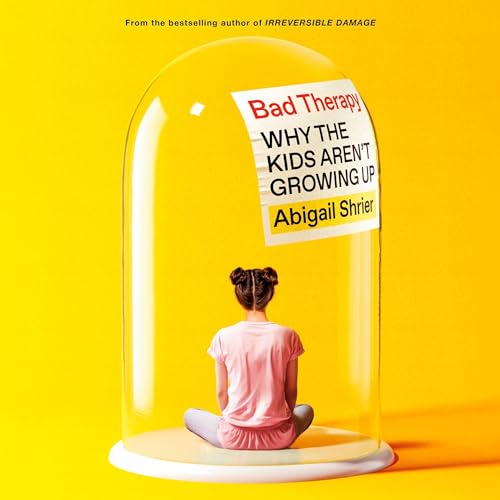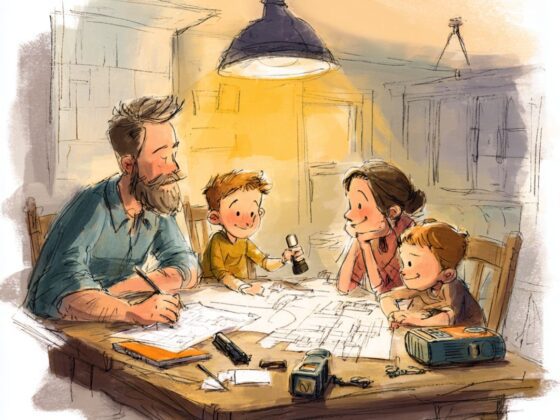Author: Abigail Shrier
As a father trying to learn how to raise my children well, I am always looking for books about my children’s health, education, and general well-being. I am pretty good at looking after myself but this raising kids thing has been a new thing for me
I was introduced to this book by Elon Musk himself in a recent tweet on the X platform.
Therapy is a powerful tool, but it can also be a dangerous one. When it becomes a crutch for avoiding life’s challenges, it can rob us of our resilience and independence. We must be careful not to become overly reliant on therapy and to remember that our own strength and determination are the most important tools we have for overcoming adversity..
Abigail Shrier
Why the Kids Aren’t Growing Up is a thought-provoking book that explores the unintended consequences of modern parenting and the mental health crisis among young people. The author, Abigail Shrier, argues that the rise in mental health issues among young people is not solely due to social progress, but rather a result of a combination of factors, including the over-reliance on therapy, the misguided efforts of well-meaning parents, and the influence of social media.
Shrier discusses the concept of “repressed memory therapy” and how it has been rebranded as “trauma therapy,” despite its lack of support in the scientific community. She also examines the role of social contagion in the spread of mental health issues, particularly among young people. The book delves into the impact of helicopter parenting and the unintended consequences of parents trying to create perfect childhoods for their children.
Iatrogenesis: When the Healer Makes Things Work
Abigail Shrier
Chapter 1 hit me right in the face with a term I had not heard before called Iatrogenesis. Iatrogenesis refers to the negative consequences or complications that result from medical treatment or advice, rather than from the underlying condition of the patient. It encompasses both adverse effects of medications and other medical interventions, as well as the consequences of misdiagnosis or inappropriate treatment. Iatrogenic conditions can range from minor side effects to severe complications, and they are an important consideration in the practice of medicine.
Throughout the book, Shrier highlights the importance of parents taking a more active role in their children’s lives, rather than relying on experts and therapists. She argues that this over-reliance on therapy can lead to a lack of resilience and independence in young people. Additionally, Shrier examines the role of standardized testing and the accommodations provided for students with mental health issues, which can create an unfair advantage for some students and further exacerbate the mental health crisis.
There were 5 key take aways for me after reading this book:
- Encourage resilience and independence: One of the key lessons from “Bad Therapy: Why the Kids Aren’t Growing Up” is that over-reliance on therapy can lead to a lack of resilience and independence in young people. Parents should encourage their children to develop problem-solving skills, face challenges, and learn from their mistakes, rather than seeking external help for every issue.
- Be cautious of social contagion: The book highlights the role of social contagion in the spread of mental health issues, particularly among young people. Parents should be aware of the potential negative influence of social media and peer pressure on their children’s mental health and well-being, and help them develop a strong sense of self and healthy coping mechanisms.
- Avoid helicopter parenting: “Bad Therapy” emphasizes the unintended consequences of parents trying to create perfect childhoods for their children. Parents should avoid over-controlling and over-protective behaviors, as these can hinder children’s ability to develop independence, self-reliance, and self-confidence.
- Foster open communication: The book encourages parents to take a more active role in their children’s lives and to be mindful of the potential negative consequences of over-reliance on therapy and mental health accommodations. Parents should create a supportive environment where their children feel comfortable discussing their feelings, thoughts, and concerns.
- Be aware of the impact of standardized testing and accommodations: “Bad Therapy” examines the role of standardized testing and the accommodations provided for students with mental health issues, which can create an unfair advantage for some students and further exacerbate the mental health crisis. Parents should be aware of the potential negative effects of these practices and advocate for a more balanced and inclusive approach to education.
Why the Kids Aren’t Growing Up is a compelling and insightful book that sheds light on the complex factors contributing to the mental health crisis among young people. It encourages parents to take a more active role in their children’s lives and to be mindful of the potential negative consequences of over-reliance on therapy and mental health accommodations.
You can purchase the book at Amazon.com










